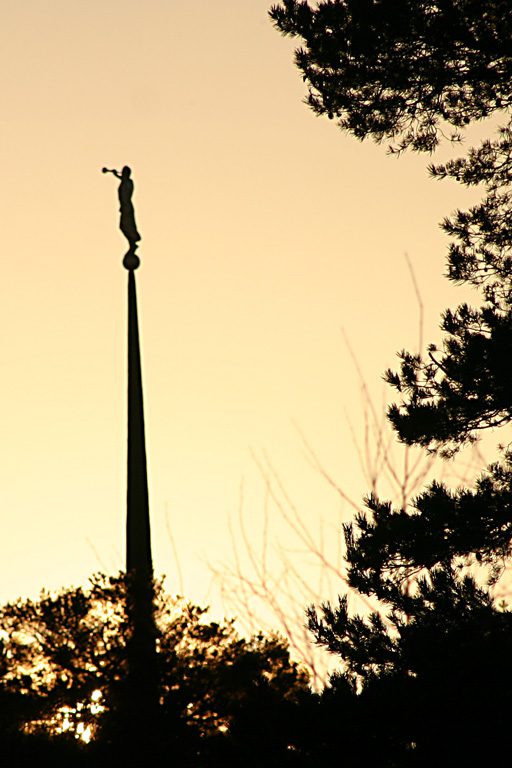
(Wikimedia Commons)
Today’s reading is Alma 28.
I’ll pick up on just one idea from it.
The chapter tells of a great war between the Nephites and the Lamanites about 75 years before the birth of Christ, and of the sorrow of those who lost loved ones during that war — sorrow not only because their loved ones were dead, but because, while the survivors had hope for the happiness in the next world of many of the dead, they feared for the postmortem prospects of many others:
12 While many thousands of others truly mourn for the loss of their kindred, yet they rejoice and exult in the hope, and even know, according to the promises of the Lord, that they are raised to dwell at the right hand of God, in a state of never-ending happiness.
13 And thus we see how great the inequality of man is because of sin and transgression, and the power of the devil, which comes by the cunning plans which he hath devised to ensnare the hearts of men.
14 And thus we see the great call of diligence of men to labor in the vineyards of the Lord; and thus we see the great reason of sorrow, and also of rejoicing—sorrow because of death and destruction among men, and joy because of the light of Christ unto life.
I’m struck by the sense in which the word inequality is used in this passage.
Western society in our time is fixated on the idea of equality. That’s far from wrong, of course, in many ways. There have been serious and indefensible injustices suffered by many on account of differences in race, class, economic resources, access to education, ethnicity, gender, and so forth, and they should be eliminated. (For the record, I regard the term marriage equality as a misuse of the concept, but that’s another topic altogether.)
But inequalities in wealth, social status, education, skin color, and the like will disappear entirely in the world to come. The only inequality that remains will be that of righteousness, as the Book of Mormon says here.
Hence, as the book of Alma says, the urgency of preaching the gospel of repentance.
The temple is a symbol and a foretaste of such inequality: Inside the temple, socio-economic class is invisible. Educational differences are erased. All wear white. All pass into the same celestial space by the same means.
Posted from Stockholm, Sweden











